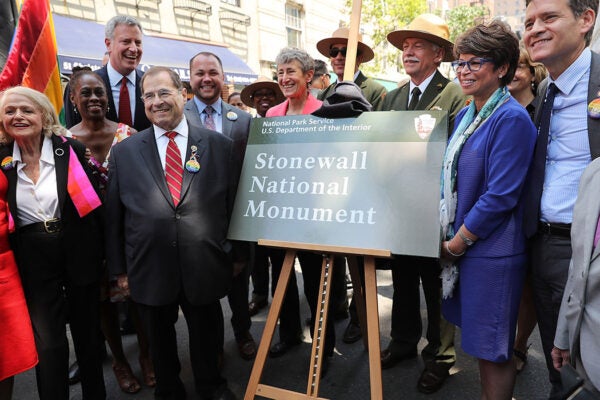Stonewall National Monument Declaration: Annotated
In June 2016, President Obama proclaimed the first LGBTQ+ national monument in the United States at the site of the 1969 Stonewall Uprising in New York City.
The Fugitive Slave Act of 1850: Annotated
The Fugitive Slave Act erased the most basic of constitutional rights for enslaved people and incentivized US Commissioners to support kidnappers.
The Alien Enemies Act: Annotated
Confused about the oft-mentioned Alien Enemies Act? This explainer, with links to free peer-reviewed scholarship, may help clear things up.
Joseph McCarthy in Wheeling, West Virginia: Annotated
Senator Joseph McCarthy built his reputation on fear-mongering, smear campaigns, and falsehoods about government employees and their associates.
“Lynch Law in America”: Annotated
Ida B. Wells-Barnett, whose January 1900 essay exposed the racist reasons given by mobs for their crimes, argued that lynch law was an American shame.
Citizens United v. Federal Election Commission: Annotated
The 2010 decision, enabling the rise of super PACS, made possible new and more covert mechanisms for funding election campaigns in the United States.
Annotations: A Christmas Carol by Charles Dickens
Scrooge became as good a friend, as good a master, and as good a man, as the good old city knew, or any other good old city, town, or borough, in the good old world.
The Treaty of Paris 1783: Annotated
The Treaty of Paris marked the end of the Revolutionary War and the hostilities between Great Britain and the newly independent United States—at least temporarily.
Andrew Jackson’s Speech on the Indian Removal Act: Annotated
In December 1830, two months after the passage of the Indian Removal Act, President Andrew Jackson used his annual Congressional message to celebrate the policy.
The Federalist No. 1: Annotated
Alexander Hamilton’s anonymous essay challenged the voting citizens of New York to hold fast to the truth when deciding to ratify (or not) the US Constitution.









